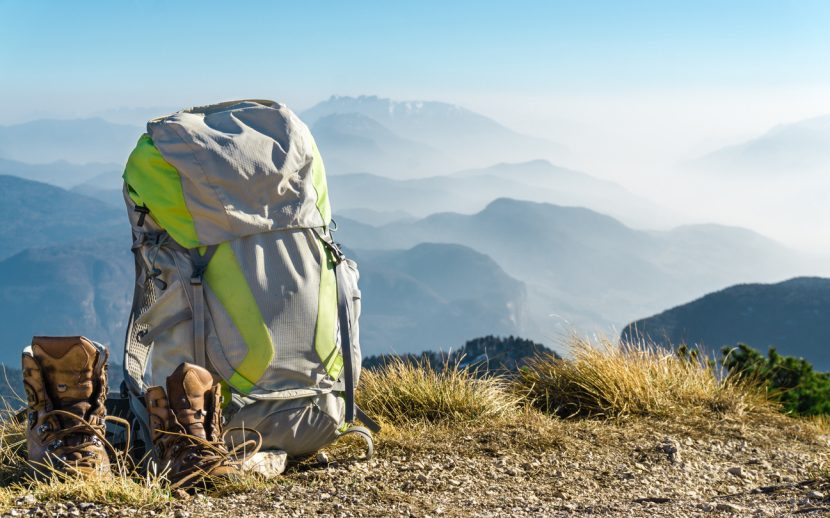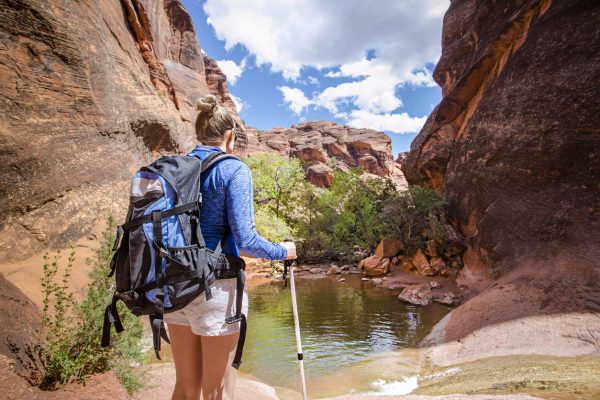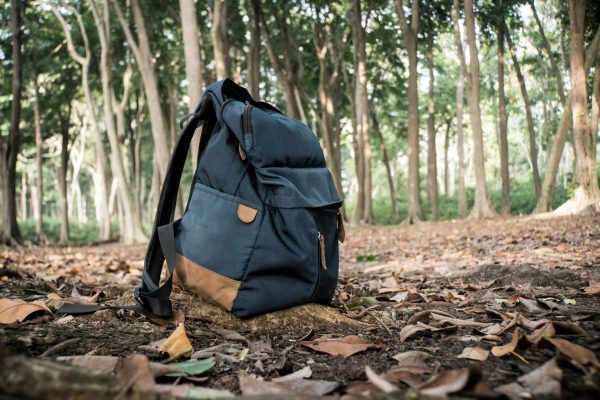The Ideal Backpack – The Beginner’s Guide to Backpacking

Backpackers, hikers, and outdoorsmen alike all depend on an efficient and well laid out backpack.
For those of you who like to experience the great outdoors in the way in which it’s meant to be experienced – on foot – then the backpack is your number one priority.
When you “hoof it,” then all your belongings are on your person – more precisely, on your back. Food, dry clothes, equipment, bedrolls, odds and ends – all can fit into a perfectly laid out backpack, making your stay in the wilderness as safe and easy as possible.
In fact, you’d be surprised by the number of important items that can fit into a modern backpack. So read on as we discuss some beginner’s top tips and tricks for assembling the perfect backpack.

We like to call the ideal backpack “a perfect load-out.” This perfect load-out needs to make you feel safe, confident, and prepared. You need to be certain that your backpack will provide all the necessities that you need in order to tackle most daily tasks and any unexpected situations as well.
Remember that any stay in the wild is far from a straightforward predictable experience, and you need to be flexible – always be ready to react in a proper way. This is why the basis and the foundation of a successful wilderness experience is your backpack. In it, you can house all the important items you need to stay comfortable and alive and also protect them from the outside elements. The next step to consider is the traditional frame pack.
These frames are robust and specifically designed to help you carry big loads on your back. They also have options for certain modifications, popularly called “mods,” which are basically do-it-yourself tweaks that help carry even more. That’s the cheaper variation, but for a bit of extra cash, you can purchase an advanced frame pack. These have a plethora of compartments, each one laid out in a helpful way, ensuring a perfected design.
The next important step for your backpack, and one to always keep in mind, is the order in which you pack things. All the items that will be used often must be placed close to the top. This ensures that you can always reach them quickly and minimizes any rummaging and needless time wasting.
In summary, the three most important aspects of a perfect load-out are preparedness, ease of movement, and ease of access.
For preparedness, it’s all logical. Thinking one step ahead will work in your benefit and help you when help is needed. Think what you might need in every situation and pack accordingly. And always make it only essential. Remember that thinking in advance might save your life.
Ease of movement is focused on your protection from all elements, but more importantly to still remain as efficient and nimble as possible, never impairing your movements and actions. Always observe carefully and make plans – these can go a long way to help you develop the perfect backpack setup.
When we mention ease of access, we like to reflect on your ability to act quickly. You must reach all important items with ease, so they must be placed in a strategic way. When you know that some crucial items are just a few inches away, you can react and quickly put them to use.

Consider this example. Your hatchet – a tool that is vital and important for a lot of situations – is down at the bottom of your backpack, buried. You have thus effectively eliminated the possibility of immediately using this item.
In summary, we’d simply like to point out that a backpack can be the difference between success and failure in the wild. Similarly, we want to emphasize the importance of outfitting. Sometimes it is a good decision to take up to a few months to prepare your supplies and equipment in advance. You can even save up money in order to purchase more advanced backpacks and equipment.
So, let’s review the necessities of a proper outdoorsman’s backpack. It needs to be sturdy and adequately waterproof against the elements. Consider purchasing an external frame for your pack. These are robust devices that help carry heavier loads more evenly.
When packing, memorize where each thing is. The most important items should be at the top of the pack, with your sleeping bag or tent stowed on top. Avoid making your backpack too high; this can lead to a loss of balance and cause you to tip over in strong winds.
Experiencing nature as a hiker is always blissful. You get to enjoy so much more than you otherwise would and travel more compactly as well. When all your necessities are right there on your back, you get so much more conscious of your weaknesses and strengths, of your possibilities, and of life in the wilderness. This is why next time you prepare your backpack, you’ll think twice about how it’s going to be assembled.
